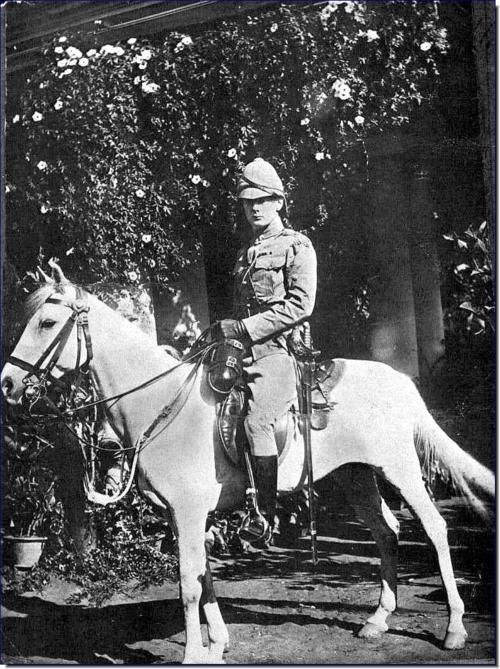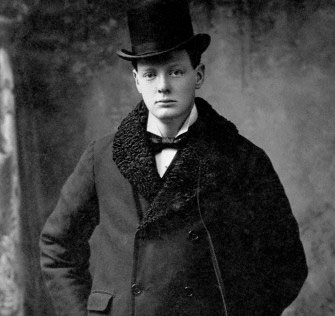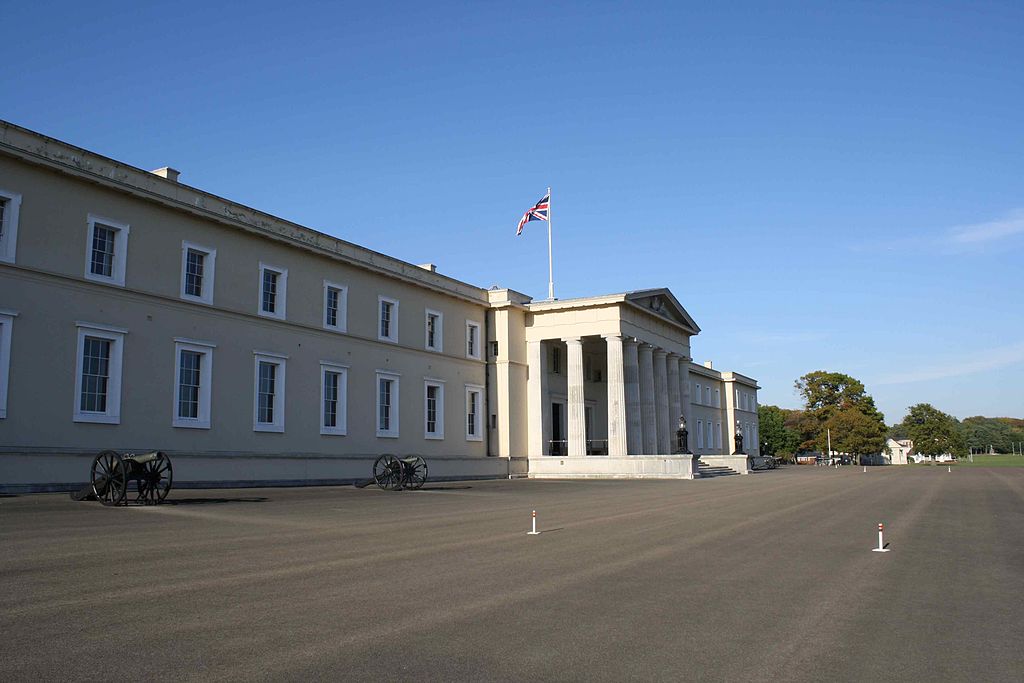TIMELINE

Winston Churchill as a young solider. Winston served in the British army from 1895 to 1898.
The death of Lord Randolph Churchill on 24 January 1895, aged just forty-five, and before Churchill had been able to prove himself to his father, clearly had a profound effect. Churchill became a cavalry officer in the 4th Queen’s Own Hussars only a month later but almost from the beginning his mind was set on following his father into politics. To do this he needed fame and fortune.
In the five years between 1895 and 1900, he sought them both by getting himself transferred to as many dangerous places as possible and then writing up his experiences as newspaper articles and books. He was shot at in Cuba, fought in what is now Pakistan, on the Afghan border, survived a cavalry charge in the Sudan, and made the headlines by escaping from Boer captivity in South Africa.
This section tells you how the young Churchill launched himself on the world.
Winston spent the term with Captain James preparing for his third attempt to get into Sandhurst. As always, mathematics was a struggle for him. ‘I am assured [that mathematical skills] are most helpful in engineering, astronomy and things like that,’ he wrote, ‘…and I am glad there are quite a number of people born with a gift and a liking for all this.’ He was not one of those people.
Read more
Some descriptive copy about this photo, some descriptive copy about this photo
Success and failure at school:
Winston was jubilant that, after three attempts, he had passed into the Royal Military College at Sandhurst. Although he had achieved a standard which admitted him to the cavalry and not to his father’s desired infantry regiment, he wrote what his own son later called ‘a somewhat insouciant letter to Lord Randolph.’ He received ‘one of the most formidable rebukes of Lord Randolph that survive.’
Sandhurst Victories: Winston entered the Royal Military College at Sandhurst as a cavalry cadet because he had not qualified for the infantry, a circumstance of great disappointment to his father. He would soon be granted an opening in the infantry, but shortly after he entered school he was invited to attend a mess of the Fourth Queen’s Own Hussars, a light cavalry regiment.
Read moreWhile playing hare and hounds, Winston experienced another miracle in his life: he survived an attempt to leap from a bridge to the top of a fir tree, but the twenty-nine foot fall ruptured his kidney. The Times grossly understated the extent of the injury when it reported that “he was very much shaken and bruised.” His parents spared no expense in providing the best medical care but he was six weeks in recovery and should have been longer.
Read moreIt was intended that Winston would join the 60th Rifles Infantry Regiment upon graduation from Sandhurst but his fervent desire to join the cavalry was expressed in a letter to his mother: ‘Promotions much quicker in Cavalry; Obtain your commission in Cav much sooner, 4th Hussars are going to India shortly
Read more
Churchill did well at Sandhurst, graduating twentieth out of a class of 130 in December 1894. As he later wrote, “It shows that I could learn quickly the things that matter.” For the first time in his life his personal interests and his work were the same and he excelled. A distinguished career had begun.
Churchill received his commission from Queen Victoria with an effective date of February 20th, 1895.
Although Winston was almost twenty years old he still received letters of admonition from his father who thought that he wasted too much time and travelled to London too frequently. Lord Randolph wrote his wife that he had written Winston that “in all qualities of steadiness taking care of things and of not doing stupid things Jack is vastly his superior.”
Unknown to his father Churchill was making plans for his future career. He was accompanied by Sir Julian Byng, who later commanded the Canadian Corps at Vimy Ridge and served as Governor-General of Canada, on a visit to the 4th Hussars, a cavalry regiment.
Read more
The Tower Bridge, the gateway to London since 1894
Winston Churchill later wrote, “in the spring of 1894 it became clear to us all that my father was gravely ill,” but when he said farewell as his parents embarked upon a world tour in June he was still unaware of just how grave it was. During the summer he began a stream of correspondence which totalled thirty letters before they returned.
Read moreChurchill remembered his years at Sandhurst, from which he “retired” with a commission in the 4th Hussars, as “hard but happy.” He felt that he had demonstrated that he “could learn quickly enough the things that mattered.”
“On the whole Great Fun!”
In his lifetime, Churchill published more than 40 books in 60 volumes.
View his writingWorking to celebrate the life and achievements of a great leader.
Young ChurchilliansIn his lifetime, Churchill published more than 40 books in 60 volumes.
View PublicationsGet the Churchill Bulletin delivered to your inbox once a month.